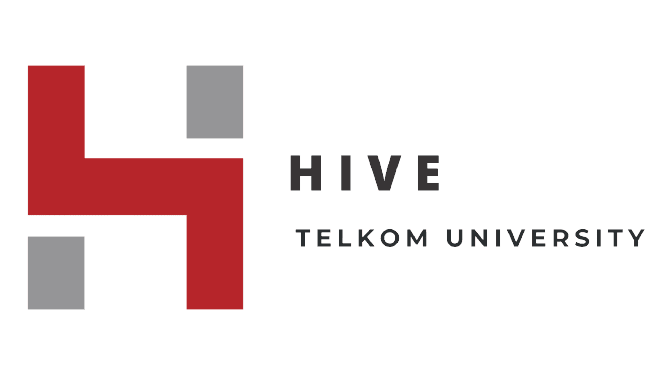Peneliti Telkom University Salah Satu Ilmuwan Terbaik Dunia – sumedang online

SUMEDANGONLINE, BANDUNG: Prestasi mendunia kembali diraih Telkom University, kali ini salah satu tenaga pengajar, peneliti Telkom University berhasil dinobatkan sebagai peneliti terbaik dunia yang dikeluarkan oleh Stanford University dan Elsevier BV.
Dr. Suyanto, S.T., M.Sc., dosen Fakultas Informatika merupakan dosen tetap Telkom University, di mana beliau telah menjadi dosen di Telkom University sejak tahun 1999 hingga saat ini.
Puluhan jurnal ilmiah telah dikeluarkan Suyanto, sebanyak 19 Jurnal Internasional terindeks Scopus dan sebanyak 72 Prosiding Internasional terindeks Scopus telah dikeluarkan. Melalui tangan dinginnya, 4 inovasi, 8 paten dan 10 buku ajar telah dihasilkan pria kelahiran Jombang 47 tahun silam ini.
Suyanto sendiri merupakan alumni S1 Teknik Informatika 1993 Telkom University (dahulu STT Telkom), kemudian melanjutkan S2 di Chalmers University of Technology Swedia, dan menempuh pendidikan doktor di Universitas Gajah Mada pada tahun 2012.
Dalam perjalanannya, Suyanto menceritakan bahwa dirinya berfokus pada penelitian di bidang Artificial Intelligence (AI), dengan sub bidang: Machine Learning (ML) dan Swarm Intelligence (SI). Ketertarikannya dalam bidang tersebut dirasakan sejak duduk dibangku kuliah S1 semester 6 Prodi S1 Teknik dan Sistem Informatika, STT Telkom, tepatnya 25 tahun silam.
“Saya tertarik di bidang AI karena menurut saya AI memungkinkan komputer bisa diajari untuk melakukan berbagai pekerjaan dengan hasil yang sama (bahkan lebih baik) dibanding manusia. Saat ini dan di masa depan, AI telah dan akan berperan penting dalam transformasi digital di segala bidang. Secara lebih spesifik, saat ini saya fokus pada riset di sub-bidang SI karena di masa depan SI akan berperan penting dalam mengoptimasi dan mengotomasi proses pembelajaran mesin pada AI dan ML.” Jelasnya.
Dari pencapaian ini Suyanto menyampaikan rasa bangga dan terima kasih kepada seluruh pihak yang telah mendukungnya dalam pelaksanaan tridharma perguruan tinggi, khususnya bidang penelitian, sehingga bisa meraih capaian ini.
“saya merasa senang bisa berkiprah di tingkat nasional dan internasional. Saya ucapkan terima kasih kepada Kemendikbud-Ristek, Yayasan Pendidikan Telkom, dan Universitas Telkom atas supportnya, dan untuk rekan-rekan dosen di Telkom University mari kita tingkatkan kolaborasi riset yang kuat dan luas di tingkat nasional dan global, dengan memperkokoh 2T (Teams & Tools) dan mempererat 2P (Pull & Push), agar kita bisa terus memberikan yang terbaik baik untuk Telkom University, Indonesia dan dunia.” Jelasnya.
Dr. Suyanto berhasil masuk kedalam salah satu dari 58 ilmuwan di Indonesia yang berasal dari berbagai lembaga riset dan perguruan tinggi dan masuk dalam daftar 2% ilmuwan yang paling berpengaruh di dunia, berdasarkan pemeringkatan Top 2% World Ranking Scientists yang dikeluarkan Stanford University dan Elsevier BV pada Oktober 2021. (rls)
SUMEDANG – Hujan dengan intensitas tinggi menyebabkan atap ruangan kelas 10 di SMK YPIB di…
SUMEDANG – Kabupaten Sumedang mencanangkan Gerakan Zero Bullying Pelajar dan Pendidikan Berbasis Kasih Sayang di…
SUMEDANG – SMKN 2 Sumedang menggelar pameran bursa kerja / job fair di Halaman Lapang…
SUMEDANG – Musyawarah Guru Mata Pelajaran (MGMP) Bahasa Inggris dalam acara Annual Sumedang English Festival…
SUMEDANG – Kepala Dinas Pendidikan Kabupaten Sumedang membuka kegiatan Gebyar Bulan Bahasa dengan Tajuk “Gestur…
SUMEDANG – Kepala Dinas Pendidikan Kabupaten Sumedang Dian Sukmara mengatakan pihaknya saat ini tengah mencoba…
SUMEDANG – Sejumlah ruangan yang ada di MTs Istighfarlah kondisinya saat ini memprihatinkan. Sekolah yang…
SUMEDANG – MTs Istghfarlah Sumedang meluncurkan program School Enterprenuer, kegiatan tersebut bersamaan dengan Maulid Nabi…
Alamat email Anda tidak akan dipublikasikan.




